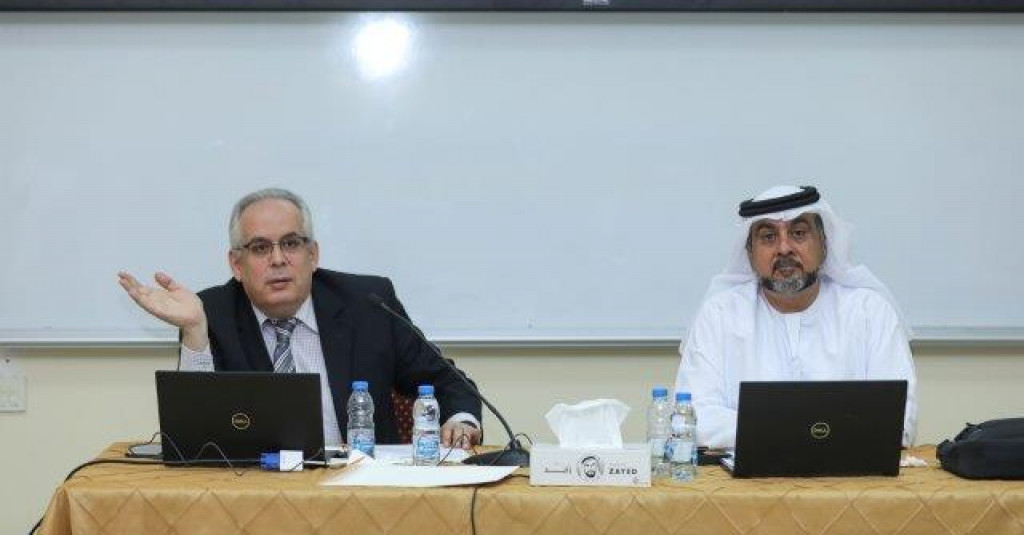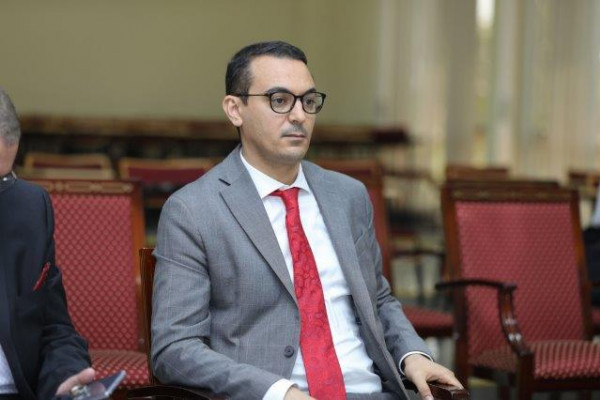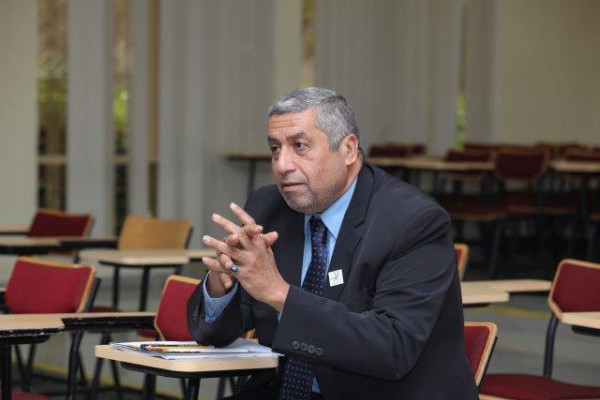Law College Organizes Seminar on "Refraining from Distress Call between Permission and Criminalization"

The College of Law at, Ajman University held a seminar entitled "Refraining from Distress Call between Permission and Criminalization" presented by Dr. Abdul Aziz Al Hasan, associate professor of criminal law, and Dr. Khalid Al Jasmi, Professor of constitutional and administrative law. The seminar was attended by staff members, students, and other interested guests.
In the first part of the seminar, Dr. Al-Jassmi spoke about the jurisprudential debate about what refrain is; whether it embodies a natural truth or whether it represents a legal reality. He indicated the mixed concept of refrain, which consists of two elements, one is natural and related to the offender, the other is legal, and related to law. He then referred to the general elements of the crime of refraining, represented by the presumption of legal duty, physical element (refraining from action), and the moral element (the voluntary nature of refrain).
In the second part of the seminar, Dr. Abdel-Aziz El-Hasan addressed the criminalization of refraining from distress calls in the laws of some countries that have not yet been consider it as a crime, and to the structure of law for this crime in light of comparative legislation. He also showed that the duty of assisting a person in danger does not exist in the law. This matter is an issue of no more than moral and social blame. However, despite the absence of a clear text, there is a point of view in answering this issue. If someone sees a person drowning, and he is able to save him even by screaming and without any sacrifice, but he does not, isn’t he liable to punishment in a number of Arab penal laws although there is no specific text?
Dr. Al-Hasan mentioned the justification for the criminalization of refraining from a distress call based on the principle of criminal legality, the principle of narrow interpretation of the criminal rule, and the prohibition of analogy in the areas of criminalization and punishment. In addition, he explained the behavior of individuals marked by indifference and excessive selfishness, which often departs from the values of altruism and solidarity. He also said that the duty of assisting others is often based on a utilitarian calculation, then a decision is made whether to provide assistance or refrain from giving a hand.



